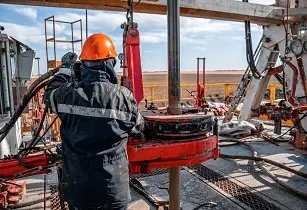Delegates at the fourth National Content Conference staged by the Petroleum Authority of Uganda (PAU) were told how the country’s oil and gas development is already generating thousands of jobs and millions of dollars of investment for Ugandans and Ugandan companies
The two day event was held at the Speke Resort Munyonyo in Kampala, in collaboration with the Uganda Chamber of Mines and Petroleum (UCMP), under the theme 'Optimising National Content in the Oil and Gas Sector, Two years After FID'. It is focusing on the opportunities for Ugandan companies, and how they can leverage these opportunities to create lasting value in the country.
Sidronius Okaasai Opolot, Minister of State for Energy and also holding the Portfolio of Minister for Energy and Mineral Development, told delegates, “The implementation of the oil and gas projects in Uganda, presents enormous opportunities for fast tracking the country's development through, among other things, the participation of Ugandans and Ugandan enterprises in providing the required goods and services.
“Priority for employment is given to Ugandans at all levels, with positive discrimination for the communities hosting the operations. At the peak it is expected that about 160,000 people will be employed. Out of these 14,000 persons will be directly employed in the oil and gas sector, 42,000 indirectly, and at least 100,000 induced. Following the announcement of FID, work on the projects have intensified and to date, 94% of the close to 11,000 employees engaged in the oil and gas projects are Ugandans.”
Ernest Rubondo, executive director at the PAU, said, “One of the key areas of focus for the Petroleum Authority of Uganda in regulation of the country’s oil and gas sector is the extent to which Ugandans and Ugandan entities are participating in the sector through employment and provision of goods and services. The other four areas of focus for the PAU are resource management, costs management, Environment, Health and Safety management together with the management of petroleum data.
“The objective is for Ugandan entities to secure 40% of this investment, so that it is domiciled in the country. The contracts approved by the Authority since 2021 amount to US$7,086,256,491. Out of these, US$1,762,758,844 went to Ugandan companies. It is important to note that these approvals have been for the first-tier contracts. As the companies which have won the first tier contracts also contract at the second and even sub-contract at the third tier, Ugandan content is increasing and we should achieve the 40%."
He went on to tell delegates that the recent developments in the oil and gas sector in Uganda and the official kick-off drilling activities in January 2023 have ramped up the oil and gas sector in Uganda. This has hence presented new opportunities for local suppliers and he stressed the opportunity for Ugandans to partner with companies working in the sector by registering on the National Suppliers Database.
Humphrey Asiimwe, CEO, Uganda Chamber of Mines and Petroleum (UCMP) explained that the idea behind national content is to ensure that at least 40% of the investments in terms of cash remain in the country. This would mean that Ugandans are benefiting from their oil and gas resource.
“The introduction of National Content Awards this year means that sector players who excel in promoting National Content are rewarded. Those who are yet to make it, have a chance to innovate around the idea and contribute to the thriving of the oil sector in general,” Asiimwe said.
The two-day conference is gathering policymakers, industry associations, and major international and national petroleum, mining and service companies. Also present are suppliers’ associations, practitioners, civil society representatives, government representatives and representatives of companies registered on the National Supplier Database from over 50 countries around the world.
The fourth National Content Conference is a critical platform for stakeholders from both the private and public sectors to showcase their work, interact, network, and foster mutually beneficial collaborations in the oil and gas sector.









